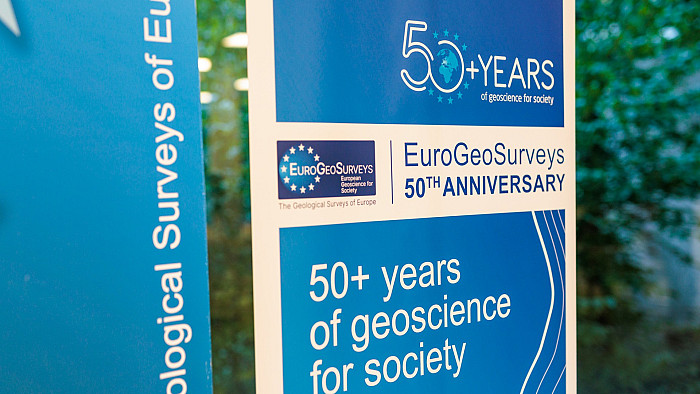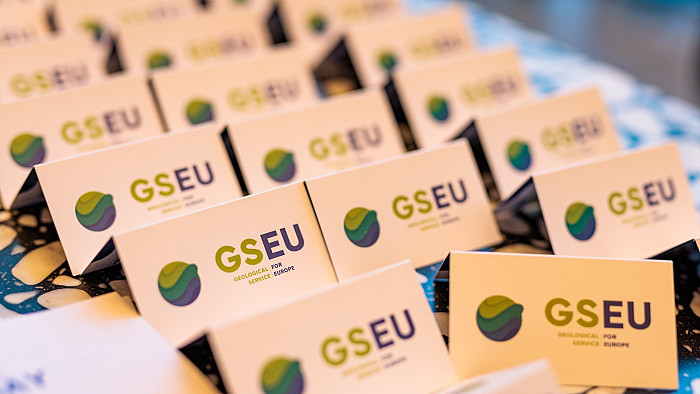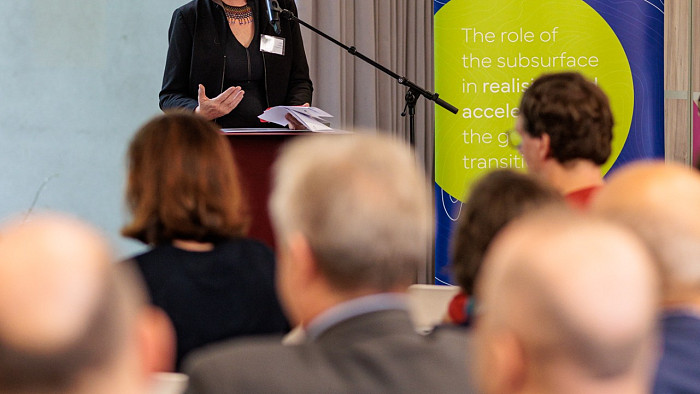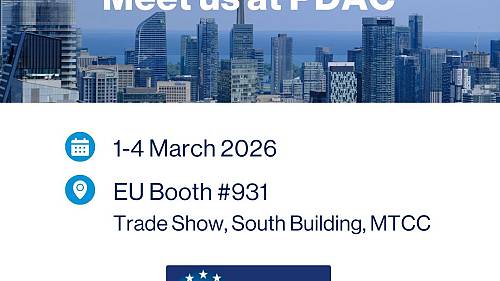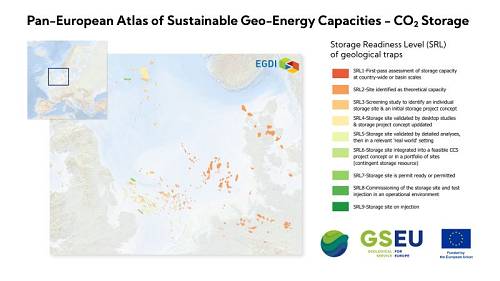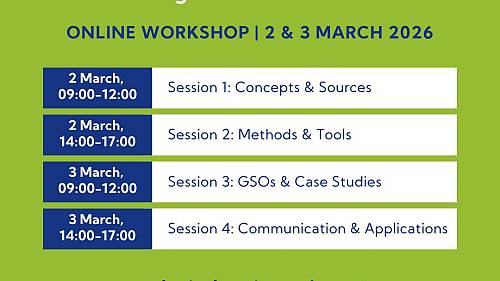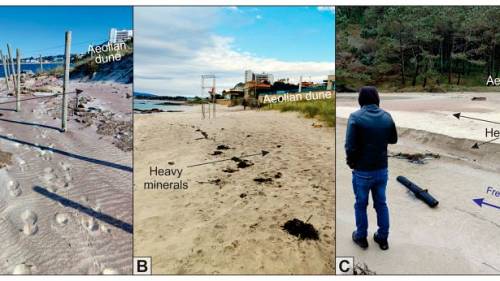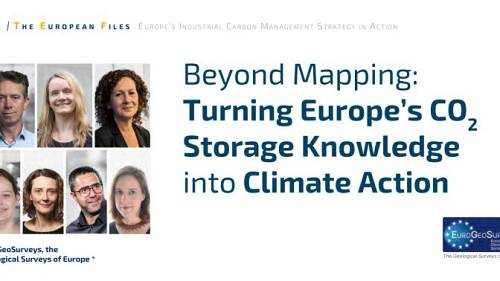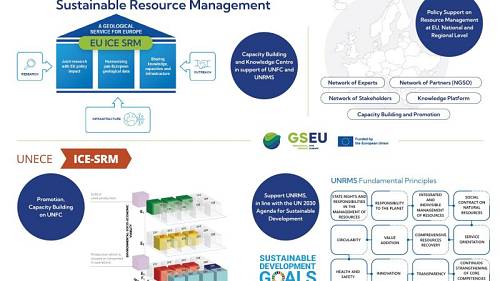GSEU Day took place in Brussels on 19 October 2023. Its purpose was to engage with our valued external stakeholders following a year of project implementation, and to drive forward our mission: a sustainable Geological Service for Europe. More than 100 people from all over Europe gathered to hear great presentations and discussions on all GSEU's areas of expertise: Raw Materials, GeoEnergy Resources, Groundwater Resources, Coastal Vulnerability & Windfarms and Geological Framework Setup, all connected and accessible through the European Geological Data Infrastructure.
Julie Hollis, Secretary General of EuroGeoSurveys, emphasised in her introduction that the involvement of external stakeholders in our ambition to establish a Geological Service for Europe - a pan-European expert network based on harmonised data, information and knowledge about Europe’s subsurface - is crucial to build strong bridges between the geoscience and policy makers to support the achievement of a green transition and a sustainable future for Europe. Collaboration beyond the geoscientific community with EU institutions and society can solve complex environmental and societal challenges that do not stop at national borders. To address problems on a continental scale, we also need to act on a continental scale, i.e. we need data on the energy, mineral and water resources that drive our society across Europe. The Earth is an interconnected system of processes, and geological knowledge and information helps to understand and effectively translate into sound, science-based policies that enable a net-zero future.
Presentations from GSEU's areas of expertise followed. Critical Raw Materials, GeoEnergy Resources, Groundwater Resources, Coastal Vulnerability & Windfarms and Geological Framework Setup were described by representatives of the GSEU team, with a focus on the products and services that will be developed under the project to support science-based policies.
The session on Building a Knowledge Platform at the GSEU project discussed the transformation of the European Geological Data Infrastructure (EGDI) into a knowledge infrastructure. This includes the interpretation of existing data and the creation of knowledge products for end users. The importance of common data models and standards was highlighted in the session on Geological Framework for Integrated Subsurface Management. The session on Coastal Vulnerability & Offshore Windfarm Siting session emphasized the development of onshore-offshore geological tools for coastal management and offshore wind energy. The session Mapping and Managing Sustainable GeoEnergy Capacities aimed to develop inventories of geothermal energy and sustainable energy carrier storage. The session on Harnessing CRMs focused on securing a supply chain for critical raw materials. Finally, the Safeguarding & Managing Europe's Groundwater Resources session addressed the integrated and sustainable use of European groundwater resources.
A sustainable Geological Service for Europe requires the technical scientific base – data, information and knowledge – as well as an expert network, which is competent to close the gaps between national data and knowledge to create harmonised data, information and knowledge on a pan-European scale. We have the technical scientific base and expert network - the GSEU project enables us to create the harmonised data, information and knowledge required to support national and pan-European policy, enable the energy transition and provide the understanding needed to implement the EU Green Deal.
For more information, visit:
GSEU: www.geologicalservice.eu
GSEU Day: https://www.geologicalservice.eu/events/gseu-day
Contact us: [email protected]
Back
